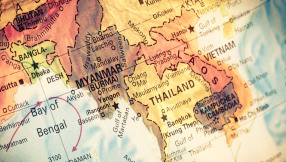Pakistan Earthquake Homeless Face Winter Crisis, Warns Church World Service
|PIC1|Some 80,000 people were killed in the devastating 7.6 magnitude earthquake that hit exactly one year ago last Sunday. Not only do hundreds of thousands remain without permanent shelter, recent monsoons have caused flash floods and landslides have killed at least 400 people and forced many already displaced by last year's quake to relocate again.
CWS ground workers are already helping out and have provided plastic sheeting, blankets, tents and food packages to affected families. A further 1,000 people have been moved to camps in the earthquake-affected zone following the floods and landslides.
The US also started fresh shipments of relief goods into Islamabad.
CWS Emergency Programme Director Donna Derr says that, while the Pakistan quake emergency response is "fairly well funded overall, health funding is falling far behind."
According to Derr, only around one third of the funding pledged to meet continuing health needs has actually been provided to the quake survivors.
"We can anticipate even greater health emergencies given winter and that so many people are still without homes. Recovery in Pakistan, despite all that's been done to date," she said, "may well take a decade."
CWS Pakistan and Afghanistan Country Director Marvin Parvez agrees that time is running out. "There's only a small window of time before winter hits, and there will be at least 200,000 people without proper shelter. We can't count on this winter being mild like last year. We're faced with a ticking time bomb," says Parvez.
CWS is now working to bring transitory shelter to around 2,000 households, shelter assistance to a further 5,000 people and food packages to help families in very isolated areas make it through the winter.











